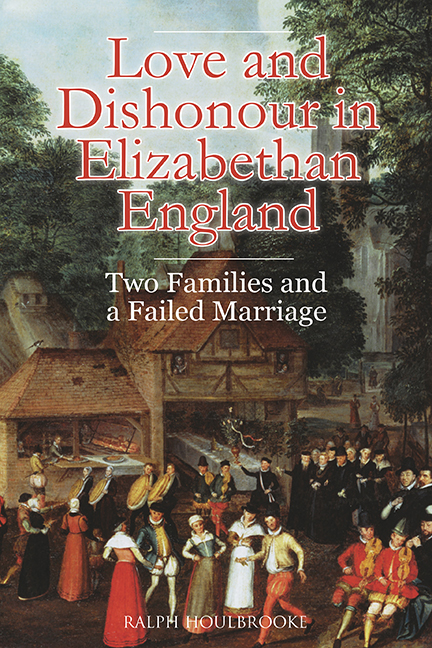Book contents
Summary
On Tuesday 6 April 1596, Elizabeth Blith of Butley in Suffolk, a twenty-three-year-old unmarried woman, was examined before three gentlemen of the county by virtue of a commission from the Court of Requests. Her testimony was given in the course of a suit brought by Robert Forth Esq. of Butley against his daughter-in-law Elizabeth Forth. Elizabeth Blith declared that she knew both the plain¬tiff and Elizabeth Forth and had known Robert's son Charles, then already deceased. She had been a chambermaid to Elizabeth Forth. She went on to describe how, some fourteen years before, Charles, then aged sixteen, had been lured into a clandestine marriage with Elizabeth, the daughter of Katherine Jerningham.
According to Elizabeth Blith
the said Elizabeth Forth … did tell her that she was marryed unto the said Charles Forth without the foreknowledge or consent of his parentes. And that the said Charles was allured to come from his schole master his house in Norwich to the house where Mrs Jerningham and the said Elizabeth did lodge and there was married by a man that came into the house there in a blewe coate, and that Mrs Jerningham perswaded … Elizabeth that the plaintife was a playne man and would sone be wonne.
Katherine Jerningham's forecast proved over-optimistic. Robert Forth was deeply affronted by this underhand usurpation of one of the most cherished of all paternal rights of a gentleman of property – the arrange¬ment of, or at the very least strong influence over, his heir's marriage. As a staunch Protestant, who knew that men of his outlook were called puritans by their religious enemies (even though he repudiated this label), he was no doubt appalled that his son should have been lured into marriage with the daughter of John Jerningham, a man whom he probably regarded as a ruined Catholic, a ‘papist’. (However, nobody involved in the case as a party or a witness ever suggested that John Jerningham had had any part in the making of Elizabeth's marriage.) Distressed though Forth was, he eventually accepted the accomplished fact of the marriage, but his wholehearted consent was never ‘won’. Eleven of the witnesses examined on his behalf that Tuesday in Holy Week 1596 described different aspects of the making and eventual breakdown of the unfortunate marriage of Charles and Elizabeth Forth.
- Type
- Chapter
- Information
- Love and Dishonour in Elizabethan EnglandTwo Families and a Failed Marriage, pp. 1 - 18Publisher: Boydell & BrewerPrint publication year: 2018

